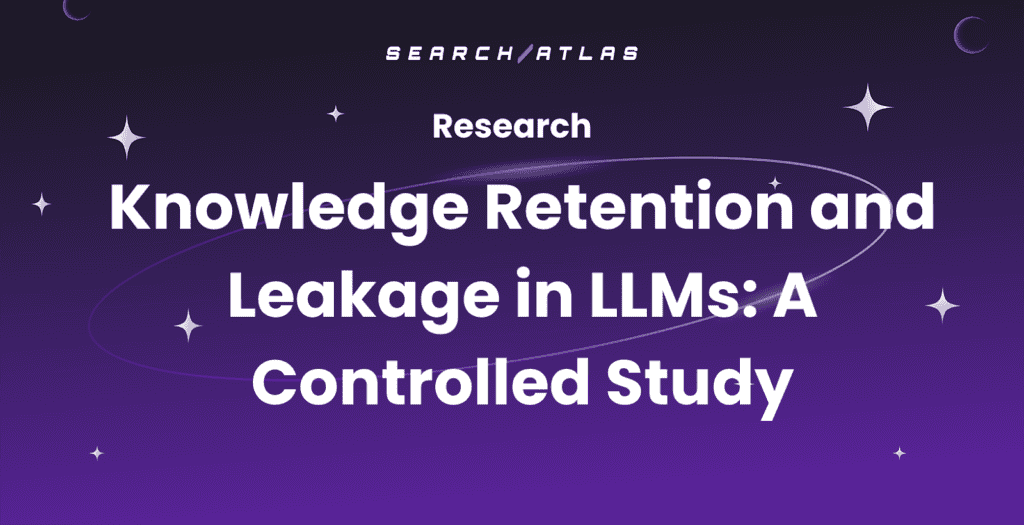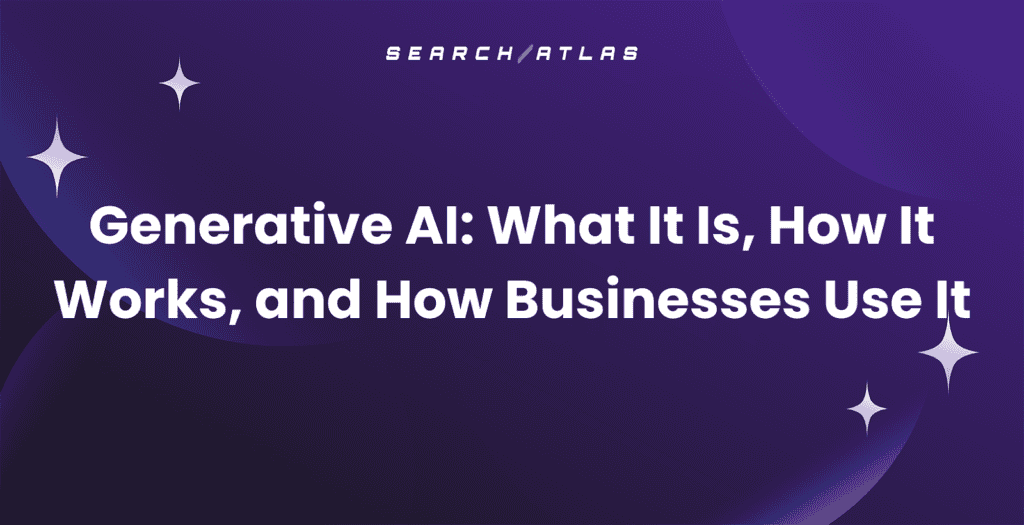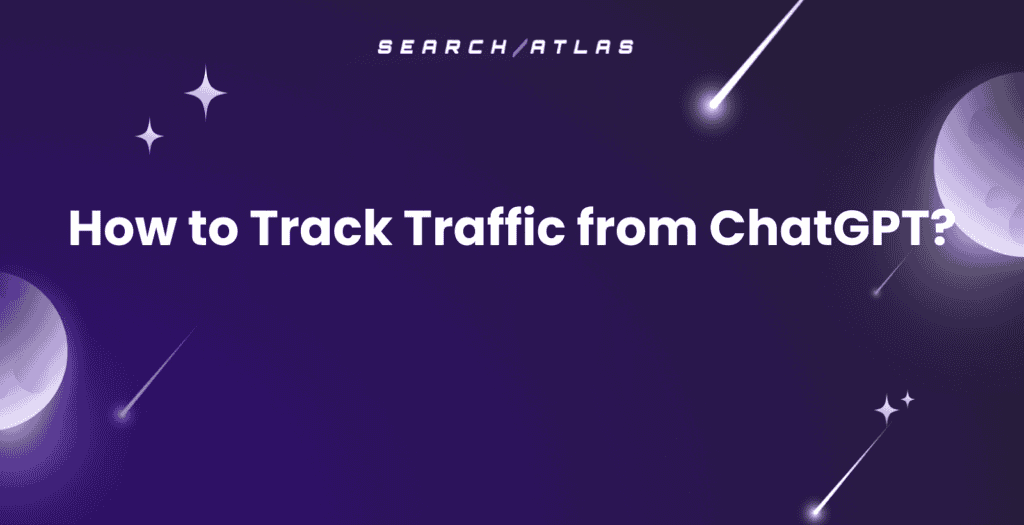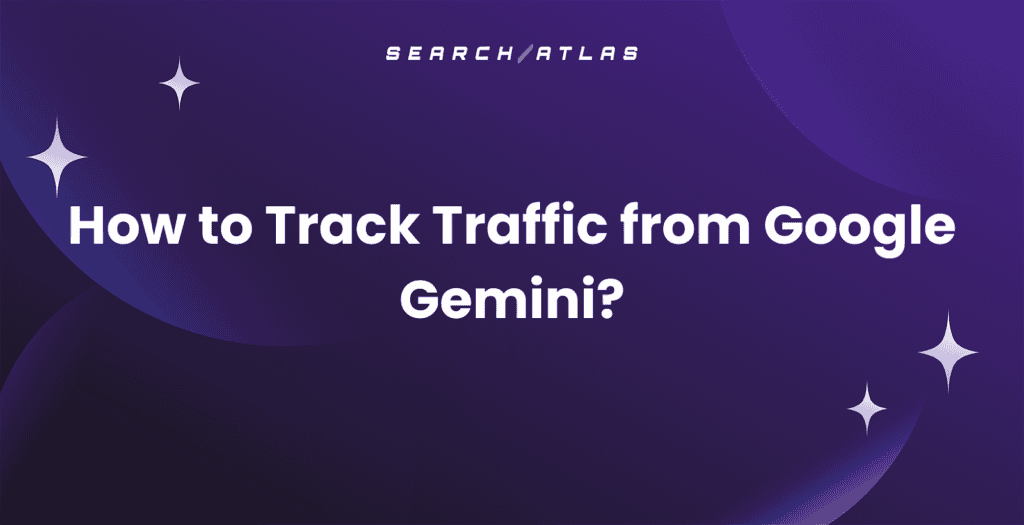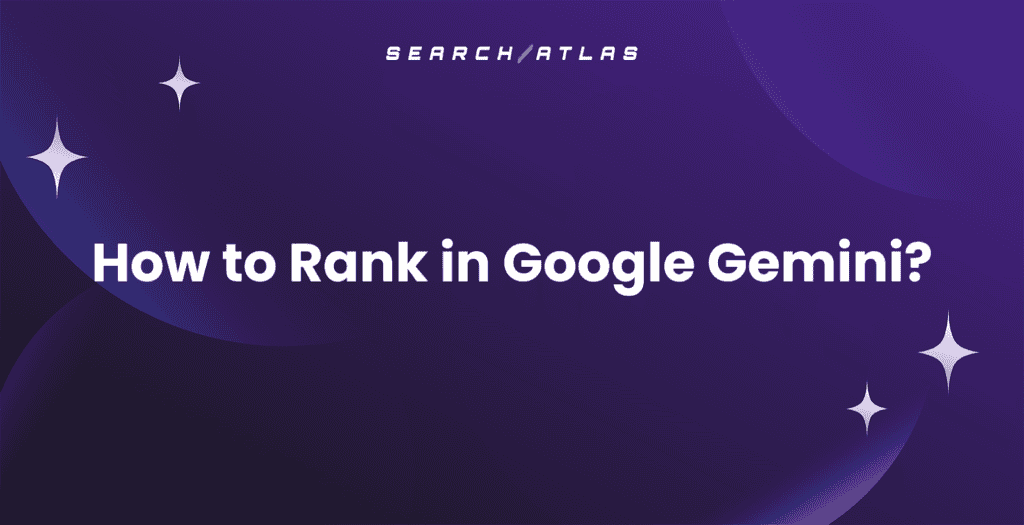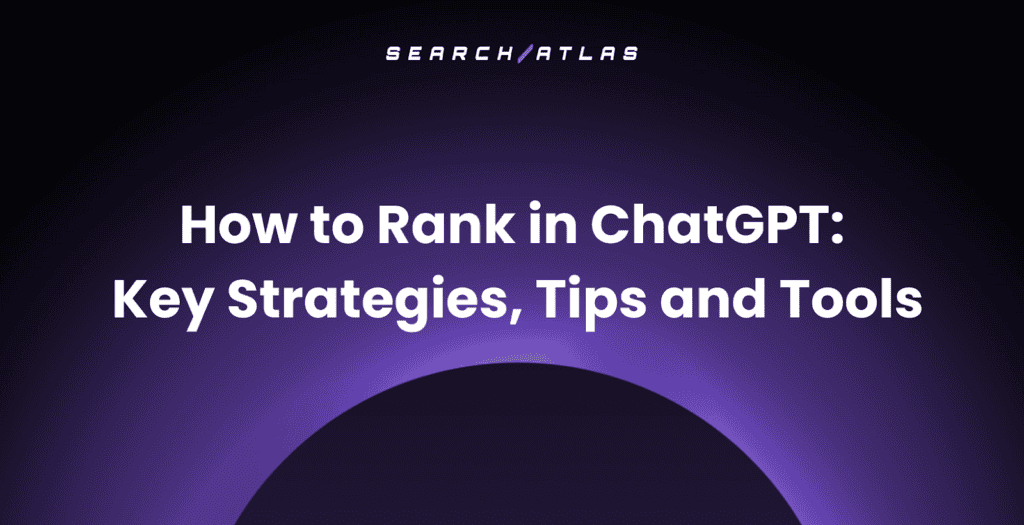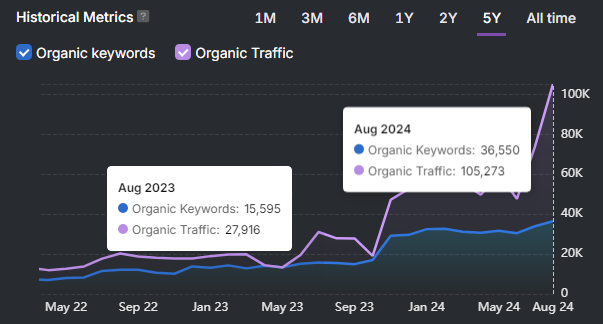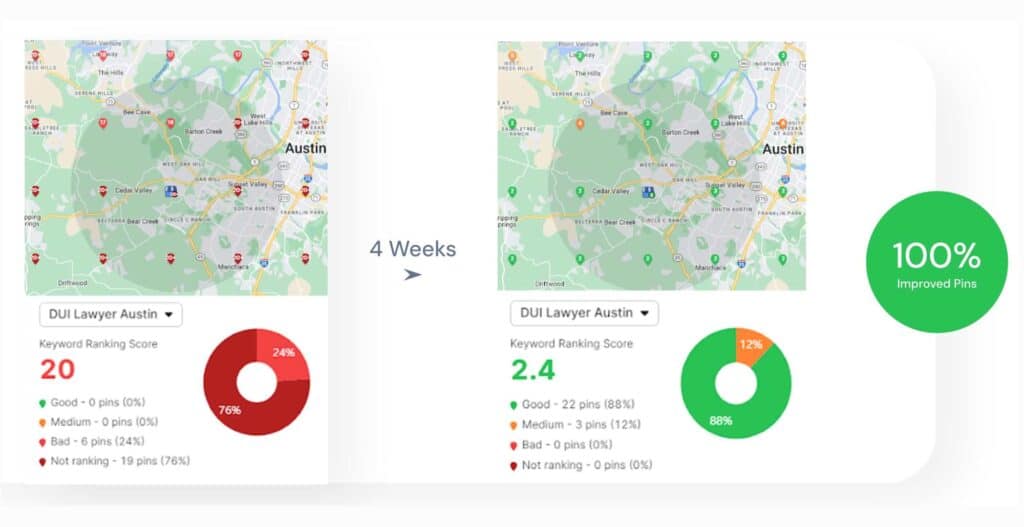The SEO Framework vs. Rank Math isn’t your typical SEO plugin comparison. These two tools aren’t just competing on features; they represent entirely different mindsets.
The SEO Framework is quiet but capable. It skips the flash in favor of clean code, speed, and smart defaults. No setup wizard, no nagging notifications, just a lightweight plugin that gets the job done behind the scenes.
Rank Math plays a louder game. It’s packed with options, integrations, and advanced controls. For users who want detailed analysis, AI content tools, and hands-on customization, it’s a playground of SEO potential—just be ready for the learning curve.
This breakdown will show you how these two plugins stack up in real-world use. Whether you want full control or quiet automation, you’ll know which one deserves a spot in your WordPress toolbox.
What Is The SEO Framework?
The SEO Framework is a lightweight WordPress plugin built for users who want fast, reliable SEO without the clutter. It quietly handles core optimization tasks in the background, offering clean code, smart defaults, and a streamlined interface that blends into your site.
Unlike many SEO tools that bombard users with ads, upsells, and branded tooltips, The SEO Framework keeps your dashboard fast and focused. It integrates seamlessly with your theme and setup, making intelligent decisions automatically while still allowing advanced customization when needed.
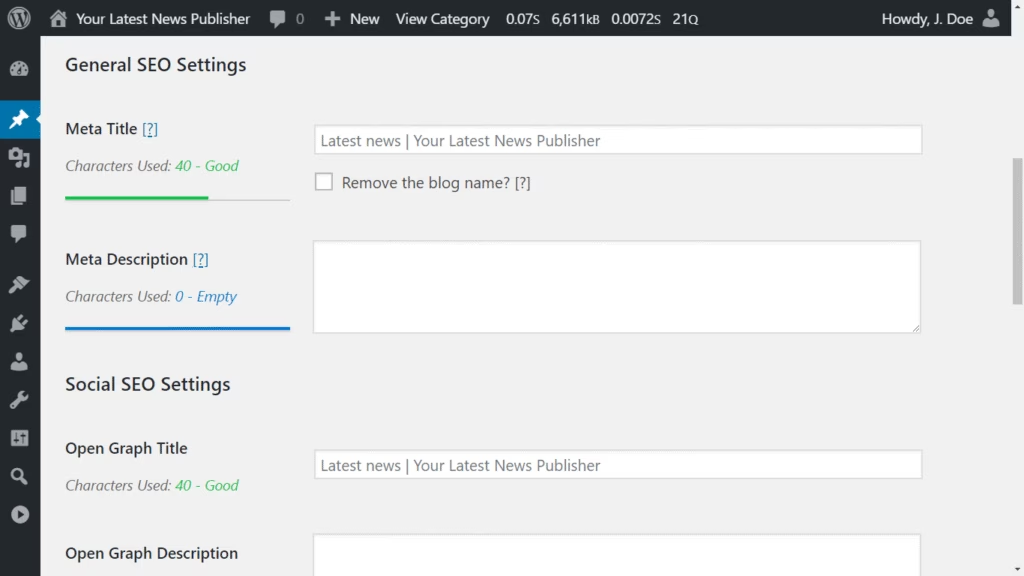
From canonical URLs to structured data and social tags, the plugin covers all the technical essentials. Its minimal design is interesting for developers, performance-minded site owners, and anyone who prefers substance over noise.
The free version includes features like metadata control, sitemap generation, breadcrumb navigation, and social sharing tags. For advanced users, the Extension Manager unlocks premium modules like local SEO, custom schema settings, and keyword targeting.

The SEO Framework Popular Features
This plugin prioritizes clean code, automation, and privacy while covering all the essentials of on-site SEO.
- Smart SEO Automation. Preloaded with intelligent defaults that require little configuration
- Canonical & Metadata Handling. Automatically generates clean meta titles and canonical URLs
- Structured Data Markup. Built-in schema support improves how your pages appear in search.
- Breadcrumb Integration. Enhances navigation and site architecture
- Social Sharing Controls. Customize how content appears on platforms like Facebook and X (Twitter)
- Ad-Free and Privacy-First. No branding, tracking, or promotional elements, even in the free version
The SEO Framework Pricing Structure
- Free. Unlimited premium critical SEO, unlimited free extensions
- Pro. $7/month — Extensions unlocked on 2 sites, 500 API requests/month
- Business. $17/month — Extensions unlocked on 20 sites, 5,000 API requests/month
- Agency. $27/month — Extensions unlocked on 200 sites, 50,000 API requests/month
What Is Rank Math?
Rank Math is a comprehensive WordPress SEO plugin designed to provide both ease of use and powerful functionality. It combines automation with manual controls, allowing users to optimize their websites efficiently while retaining flexibility.
The plugin stands out with its Content AI feature, which offers real-time keyword suggestions, content recommendations, and internal linking advice based on your page’s topic. This makes it easier to create SEO-optimized content right from the WordPress editor.
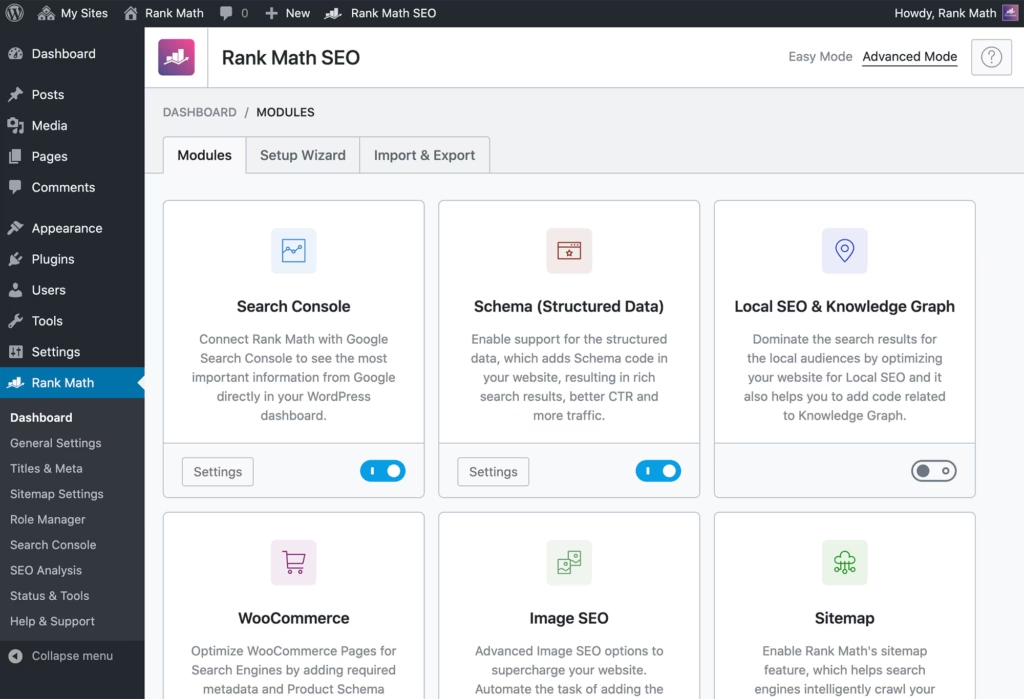
Technical SEO is well-covered with tools like schema markup generation, redirection management, and 404 monitoring, ensuring your site’s structure supports search visibility. Additionally, Rank Math integrates with Google Search Console and analytics to provide actionable insights inside the plugin itself.
Rank Math’s free version includes many tools, while premium plans add features like higher keyword tracking limits, increased AI content credits, and support for more client websites.
Math Popular Features
Rank Math offers a rich toolkit for technical SEO, content optimization, and site management.
- Content AI Assistant. Suggests keywords, topics, and internal links based on live search data, helping shape SEO-friendly content inside the WordPress editor.
- Advanced SEO Analysis. Performs full-site audits with detailed recommendations to improve technical SEO, metadata, and content structure.
- Schema Generator. Supports a wide range of schema types with built-in templates and customization options for rich snippets.
- Image SEO Automation. Automatically generates ALT text and title attributes to improve image indexing and accessibility.
- 404 Monitor & Redirect Manager. Detects broken URLs and allows for quick, manual or automated redirection to protect SEO equity.
- Search Console & Analytics Integration. Displays search performance data, impressions, clicks, and keyword rankings without leaving the dashboard.
Rank Math Pricing Structure
- Pro Plan. $6.99/month — Unlimited personal websites, tracks 500 keywords, 5k AI content credits.
- Business Plan. $20.99/month — 100 client websites, tracks 10k keywords, 12k AI content credits.
- Agency Plan. $49.99/month — 500 client websites, tracks 50k keywords, 30k AI content credits.
The SEO Framework vs. Rank Math: Which Approach Wins in 2025?
The SEO Framework and Rank Math both offer powerful tools for WordPress optimization, but they are different. To help you find the right fit, we’ll compare them across seven key categories—from user experience and content tools to technical SEO, scalability, and overall value.
1. Ease of Setup
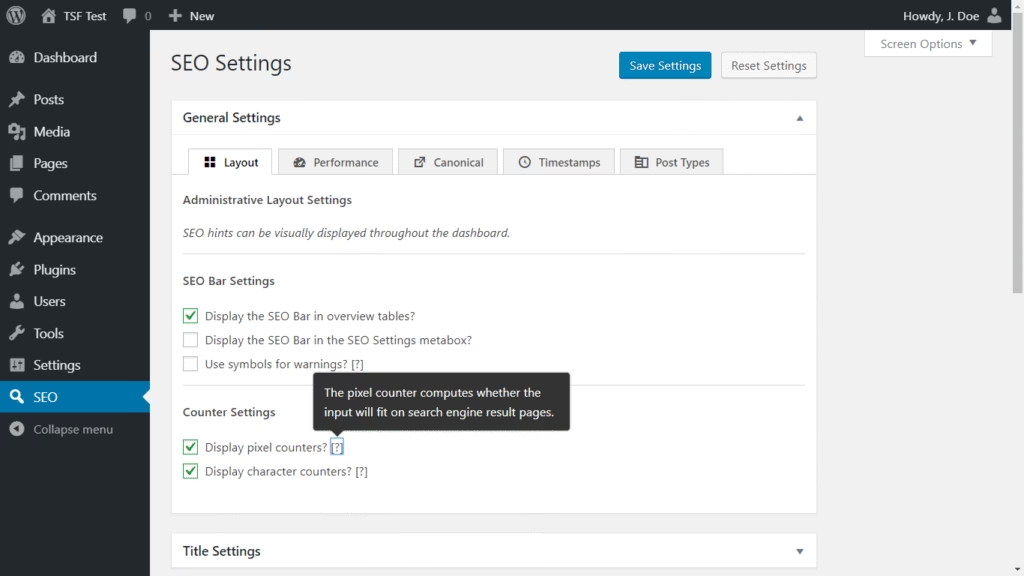
Designed with automation-first users in mind, The SEO Framework doesn’t ask much on install. It auto-applies smart defaults for metadata, indexing, and canonical URLs the moment it’s activated.
There’s no setup wizard, no prompt screens—just instant optimization. For experienced users, this is a dream. For beginners, it will potentially feel too quiet, with little direction about what’s happening or what to customize next.
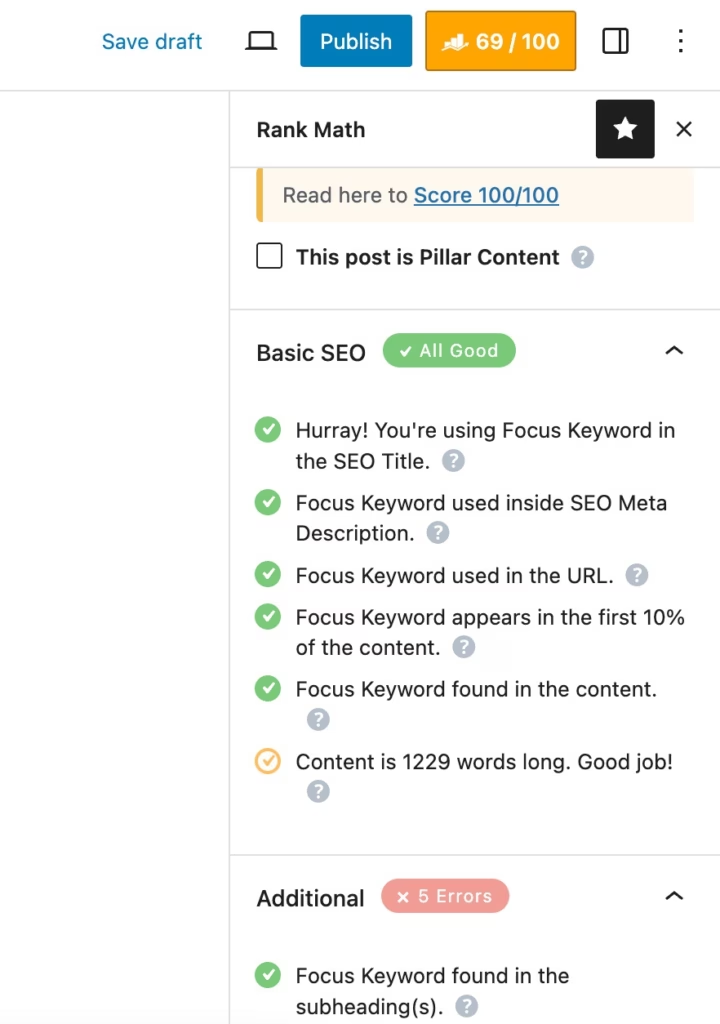
Rank Math rolls out a comprehensive setup wizard that asks all the right questions—site type, logo, social links, preferred schema types, and more. Even advanced options like redirection settings and analytics integration are included during onboarding.
This guided process makes it easier to launch with confidence, although the number of options feel overwhelming to users who simply want a “set it and forget it” approach.
The SEO Framework and Rank Math are tied for ease of setup
Rank Math offers a highly guided onboarding experience, ideal for marketers and advanced users. The SEO Framework provides quicker deployment with smart defaults, appealing to minimalists and developers. Both approaches serve different audiences effectively.,
2. User Experience and Interface
At The SEO Framework, minimalism is at the core of its design. The plugin blends quietly into the WordPress admin without flashy icons, notifications, or branding.
You won’t see constant reminders to upgrade or engage with new features. This creates a distraction-free environment, but makes the plugin feel invisible to less confident users looking for real-time validation or visual cues.
Rank Math has a highly interactive interface. It shows page scores, optimization tips, link suggestions, and schema previews directly inside the WordPress editor.
Color-coded indicators and tooltips offer instant clarity on where and how to improve content. However, the tradeoff is a heavier footprint, as pages have the potential to load slightly more slowly due to the extra UI elements.
The SEO Framework wins for user experience and interface
For users who value a quiet, native interface without distractions or branding, The SEO Framework delivers a cleaner experience. Rank Math offers more interactivity, but with more visual noise.
3. Content Optimization Tools
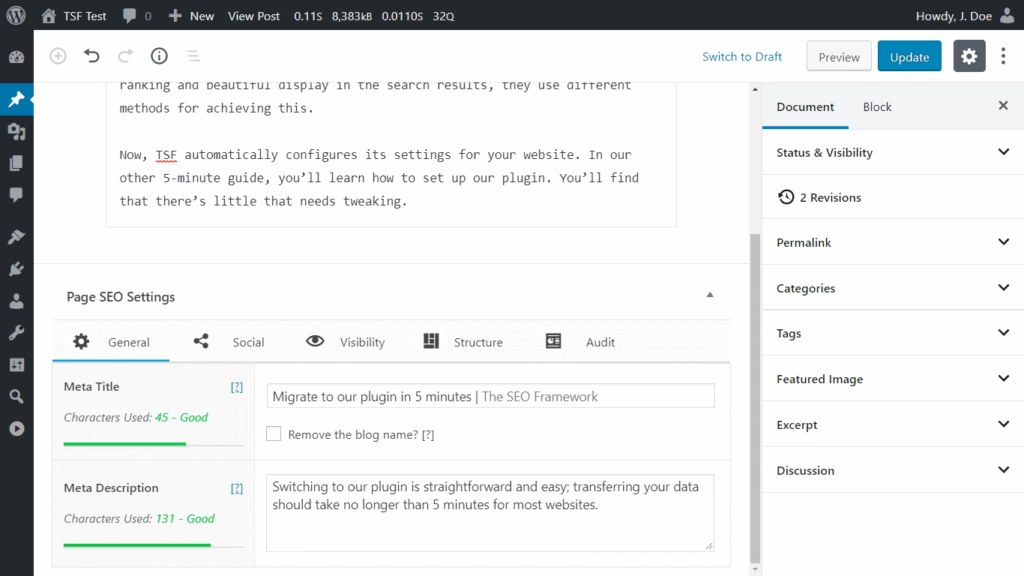
The SEO Framework provides basic content feedback through page-level indicators and supports focus keywords via premium extensions. It avoids gamified scoring systems or checklists. While efficient for technical accuracy, it offers less real-time guidance for content creators.
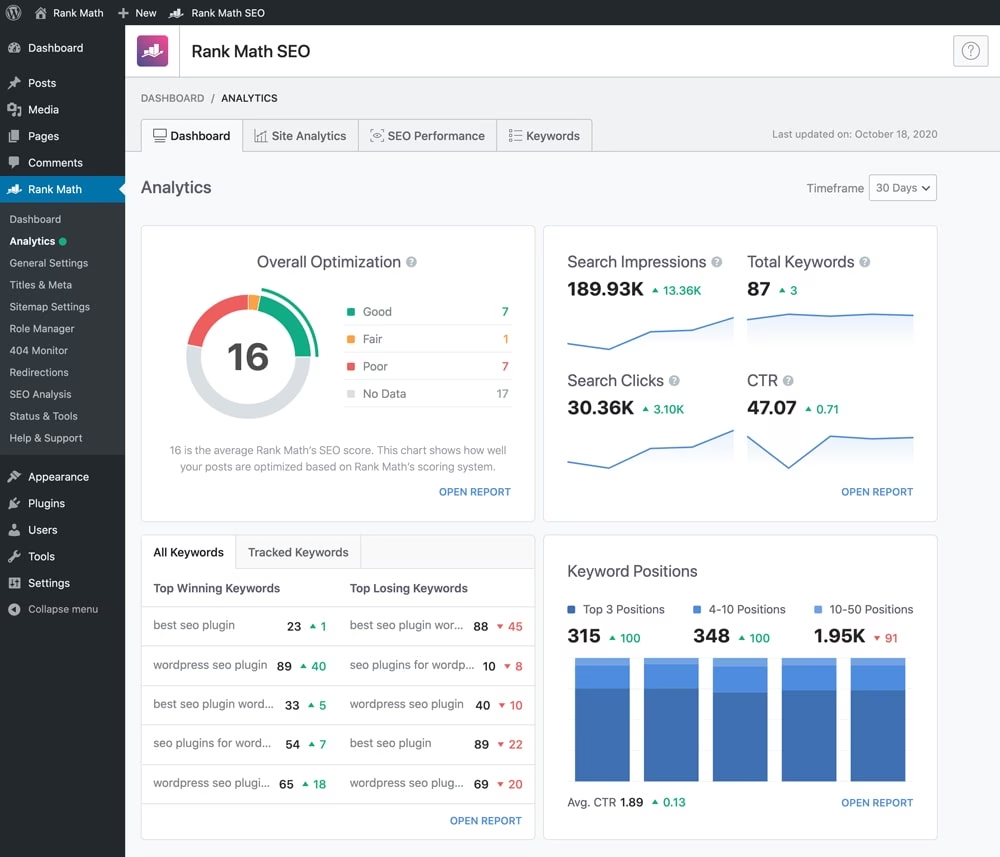
Rank Math excels in content optimization. With built-in scoring, keyword density analysis, readability tips, and the Content AI module, the plugin assists in shaping blog posts and landing pages directly inside the editor. Users are able to optimize for multiple focus keywords and receive topic-level suggestions.
Rank Math wins for content optimization tools
Rank Math offers far more tools for content creators and SEO writers. Its AI and scoring tools provide guidance. The SEO Framework does not attempt to match.
4. Schema and Structured Data
The SEO Framework automatically applies essential structured data such as breadcrumbs, organization, and article markup. Users expand schema options using premium extensions for custom control. While accurate and fast, its schema options require some technical familiarity.
Rank Math features a full schema generator with templates for products, recipes, events, courses, and more. It includes inline schema editing, import/export functionality, and conditional logic, making it suitable for content-rich and e-commerce-heavy websites.
The winner for schema and structured data is Rank Math
Rank Math’s schema flexibility and visual controls make it more versatile. The SEO Framework provides a solid baseline, but less variety out of the box.
5. Technical SEO Features
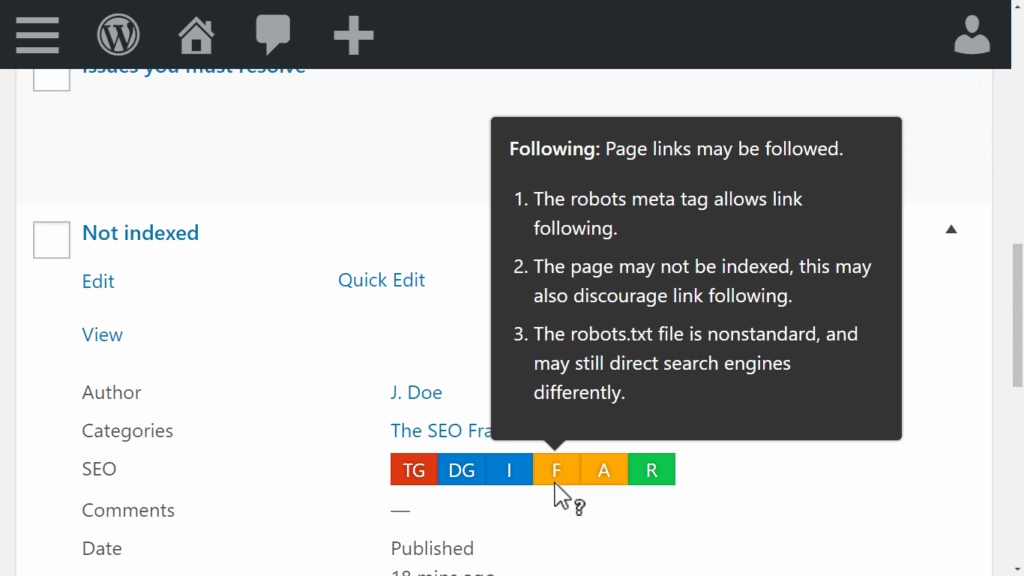
The SEO Framework handles canonical URLs, meta robots directives, Open Graph metadata, and redirects without extra configuration. Its automated output produces clean code, lightweight markup, and accurate metadata across post types. It focuses on correct implementation rather than customization.
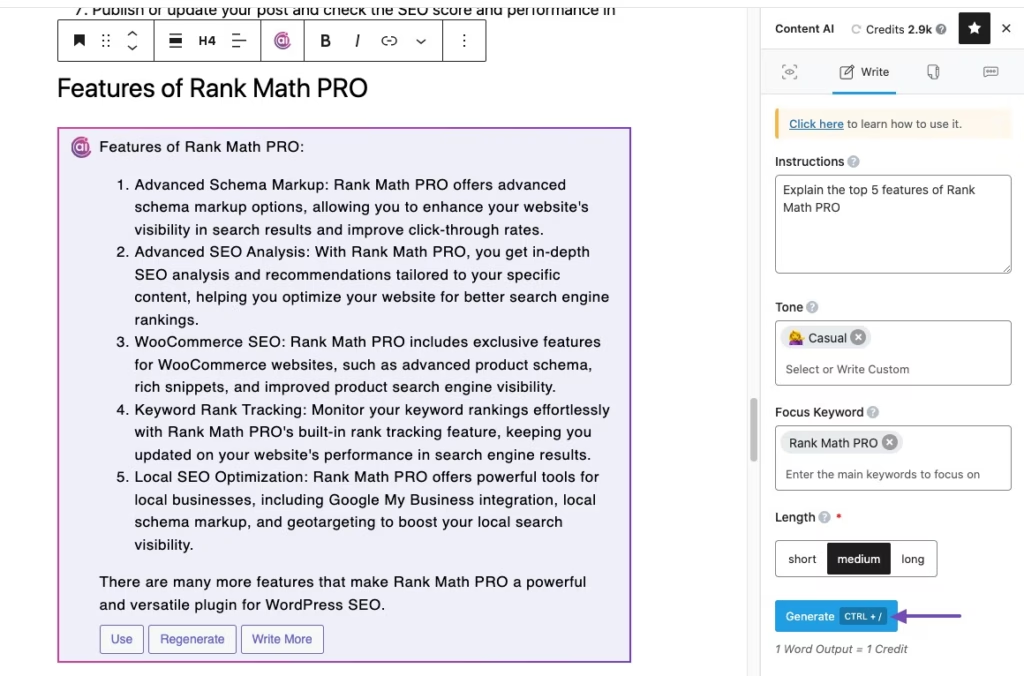
Rank Math goes further with tools like advanced redirection rules, 404 monitors, sitemap customization, and performance-focused options like instant indexing and AMP compatibility. It includes advanced settings for power users and webmasters managing complex setups.
Rank Math comes out on top for technical SEO features
Rank Math provides broader coverage for technical SEO. The SEO Framework excels at efficiency but offers fewer options for custom logic or edge cases.
6. Performance and Bloat
The SEO Framework is built for speed and minimal impact. It adds very little to the page load, avoids third-party script dependencies, and outputs only essential code. No ads, tracking scripts, or branding appear anywhere on the site.
Rank Math is heavier by comparison. It includes many modules that load additional scripts, styles, and admin assets. Although the plugin is optimized for performance, users must manually disable unused features to reduce load.
The SEO Framework prevails for performance and bloat
The SEO Framework wins in lean code output, low resource usage, and absence of UI clutter. Rank Math’s flexibility comes at a cost in overhead.
7. AI and Automation
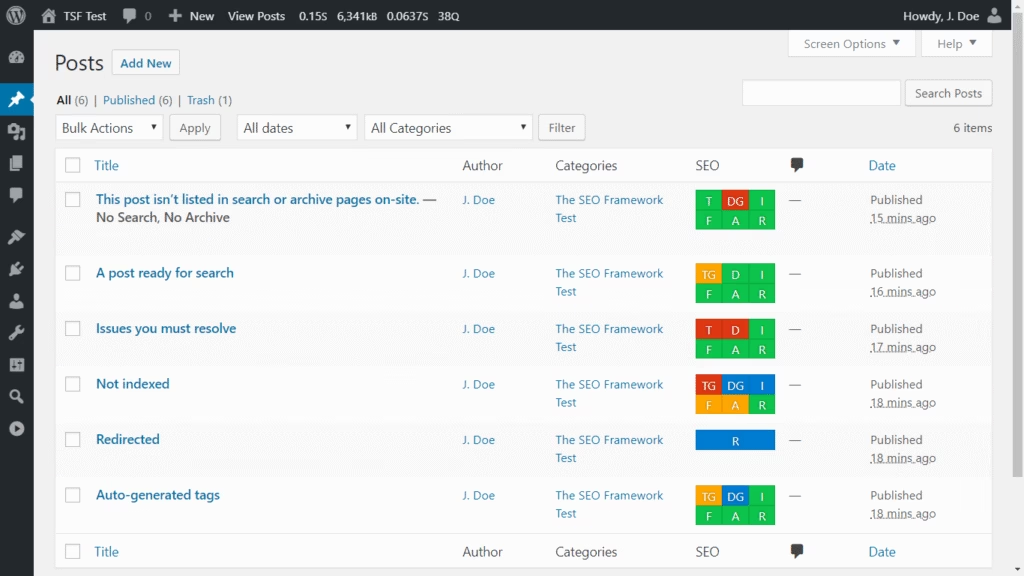
The SEO Framework has no artificial intelligence features offered, and it doesn’t integrate with any external keyword tools. Its automation lies in its philosophy of applying the right defaults automatically—minimal input, solid results.
Rank Math’s AI system suggests keywords, outlines, FAQs, and titles, helping users produce SEO-aligned content quickly. These suggestions are based on real-time SERP data. It’s an asset for editorial teams, bloggers, and SEOs managing lots of content or clients.
Rank Math is the winner for AI and automation
Rank Math provides true AI-driven guidance. The SEO Framework is automated, but not intelligent in the AI sense.
8. Pricing and Value
The SEO Framework offers a transparent pricing model with a free core plugin that includes all essential SEO functions, including metadata handling, sitemaps, and social tags. Premium features like local SEO, schema customization, and keyword targeting are unlocked through the Extension Manager.
Rank Math delivers strong value through its free version, which includes many advanced tools, such as redirection management, schema templates, and focus keyword support, that often appear behind paywalls in other plugins.
Rank Math and The SEO Framework are pretty evenly matched for pricing and value
Both plugins deliver excellent value, but in different ways. The SEO Framework emphasizes simplicity and clean code, while Rank Math maximizes features per dollar. Which one offers the better deal depends on the user’s needs, making this category too close to call.
That’s exactly why it’s worth considering whether another SEO solution combines clean automation with deep customization, without forcing a tradeoff.
Beyond The SEO Framework and Rank Math: Why Search Atlas Stands Out
The SEO Framework and Rank Math each bring useful SEO capabilities to WordPress, but they mostly revolve around on-page optimization, metadata management, and basic automation. For users who need deeper control, AI assistance, and scalability beyond WordPress boundaries, both tools fall short.
Search Atlas functions as a complete SEO operating system, purpose-built for marketers, agencies, and content teams looking to maximize efficiency, technical depth, and visibility across every part of their SEO strategy.
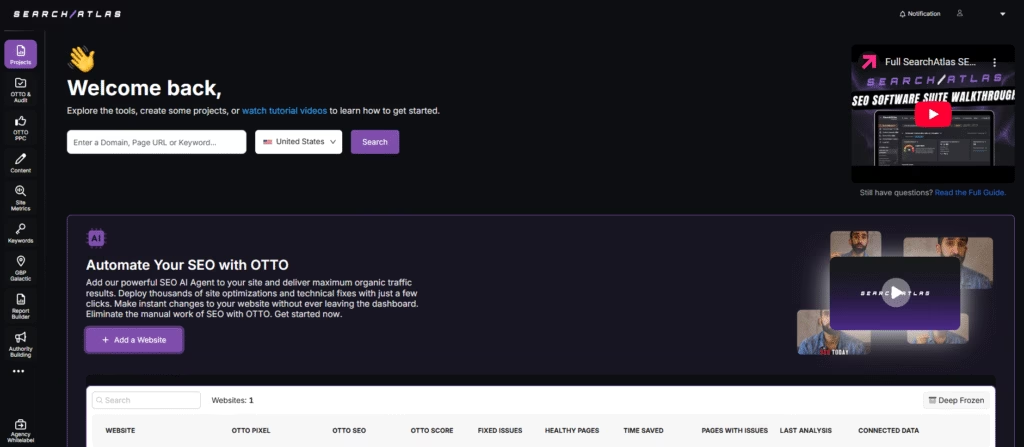
Search Atlas Features
Search Atlas fills the gaps left by The SEO Framework and Rank Math. Instead of operating inside a WordPress dashboard, it runs as a standalone platform that centralizes every component of modern SEO—technical, content, schema, links, and automation.
Content Genius
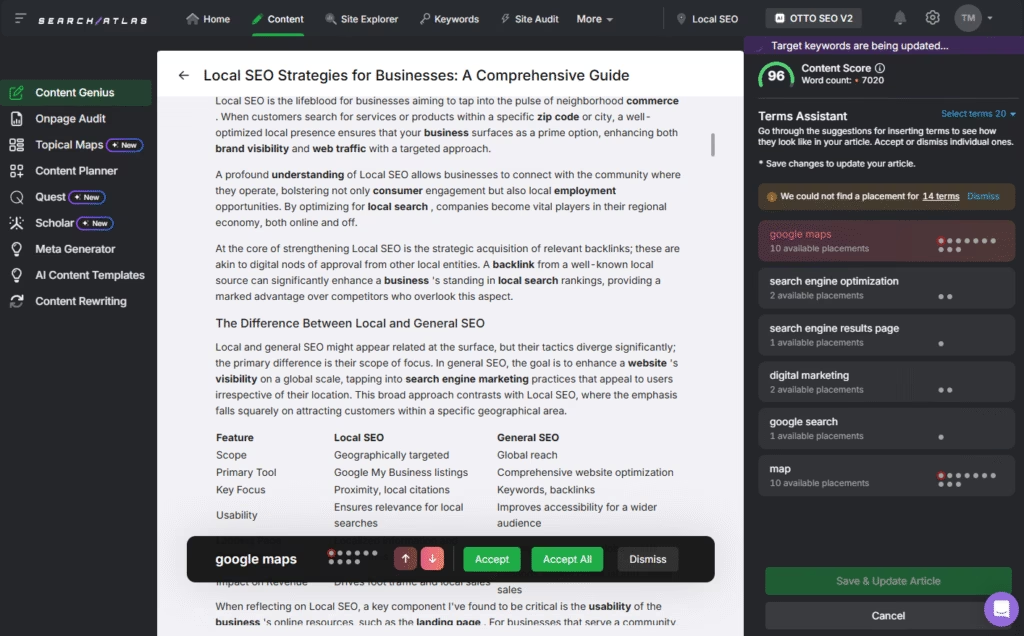
The SEO Framework doesn’t focus on content optimization, and while Rank Math includes real-time suggestions through its Content AI module, it still requires switching between interfaces and plugins to manage research, writing, and optimization.
Search Atlas introduces Content Genius, an end-to-end content workflow engine that enables users to easily perform several tasks.
- Plan keyword-targeted content clusters based on SERP overlap and topical depth.
- Generate long-form, SEO-friendly drafts using AI trained in semantic and structural best practices.
- Optimize content live for structure, density, headings, and internal link opportunities.
- Push final drafts directly to WordPress with one click.
OTTO
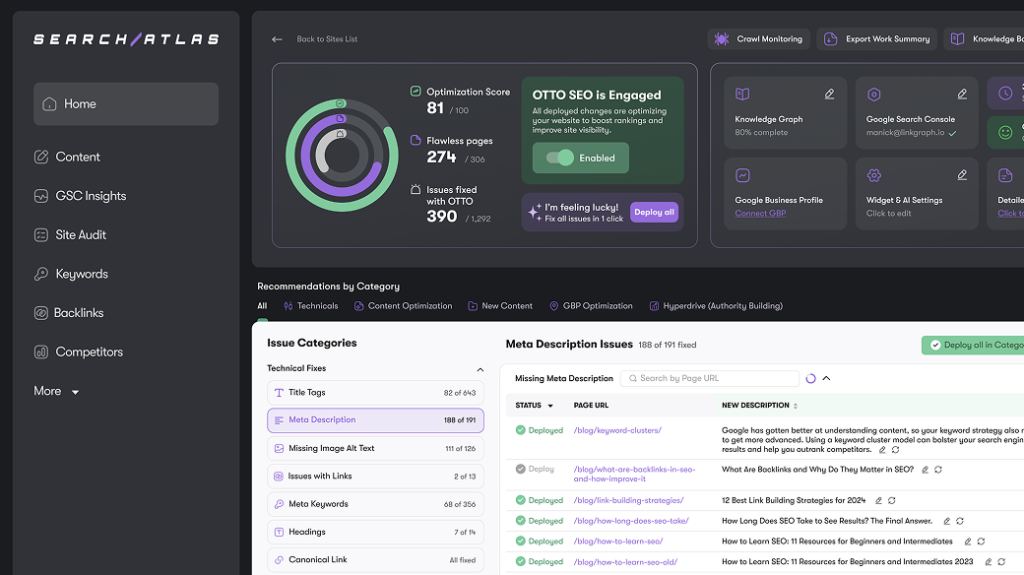
The SEO Framework and Rank Math provide metadata templates and schema options, but both rely heavily on user configuration and lack real-time, AI-led site-wide automation.
Search Atlas includes OTTO, an AI-driven automation engine that continuously audits websites, applies technical fixes, and optimizes performance based on live SEO signals.
- Schema markup generation and validation across content types
- Automatic metadata rewriting based on real-world keyword performance
- Canonical correction, instant indexing setup, and crawl efficiency updates
- Internal link optimization based on entity relationships and site depth
With OTTO, optimization no longer depends on the user remembering to act—automation does the heavy lifting at scale.
Backlink Strategy and Outreach
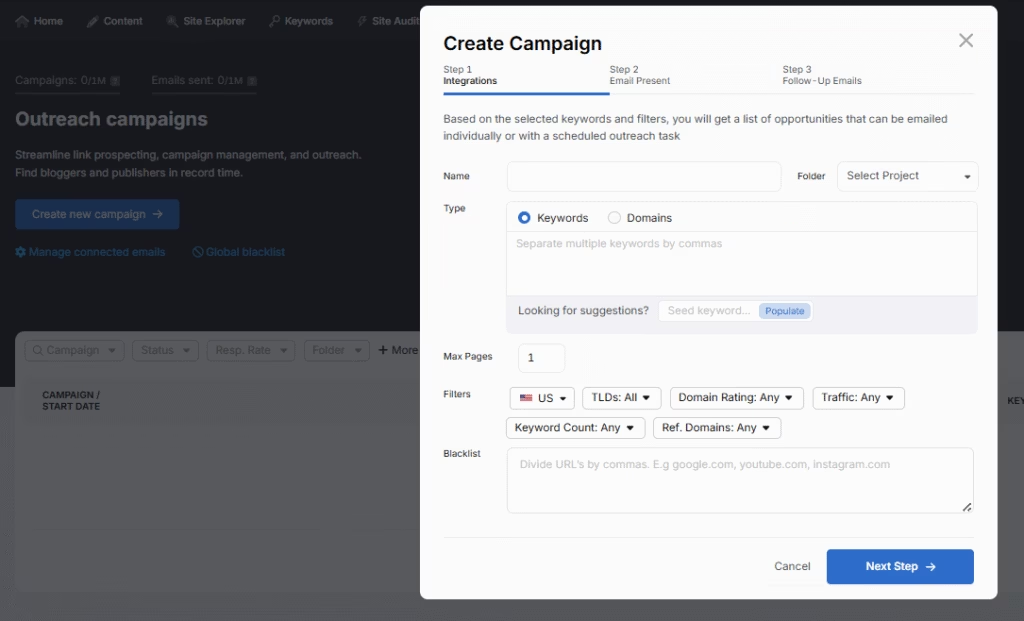
Neither Rank Math nor The SEO Framework offers built-in backlink analysis, competitor tracking, or outreach workflows. External link building remains outside their ecosystem.
Search Atlas provides a full backlink suite, including:
- Competitor link gap analysis to discover missed linking opportunities
- Link quality scoring by authority, niche fit, and anchor text
- Outreach CRM to manage campaigns, contacts, and follow-ups without leaving the platform
Keyword Research and Content Mapping
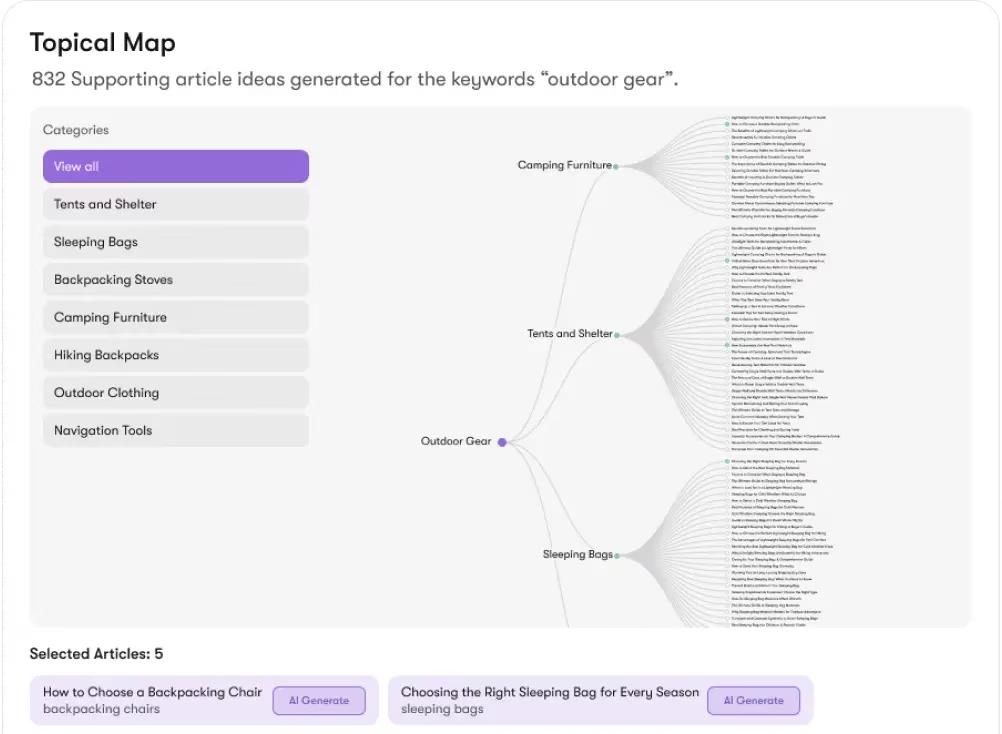
The SEO Framework lacks keyword research capabilities entirely. Rank Math allows for keyword focus and tracking, but it doesn’t offer strategic research, cluster mapping, or SERP-level analysis.
Search Atlas offers an integrated keyword intelligence suite that powers content strategy from planning to publishing:
- Discover keyword opportunities using filters for difficulty, volume, and intent
- Analyze SERP gaps and competitor rankings to find openings
- Build dynamic topic maps that structure content by theme, authority, and search behavior
Search Atlas Pricing
Search Atlas uses a tiered subscription model that unlocks all core features—content, automation, technical SEO, keyword research, and outreach—under one license.
| Starter plan | Growth plan | Pro plan | |
|---|---|---|---|
| Price | $99/month | $199/month | $399/month |
| Free OTTO activation | 1 | 2 | 4 |
| User seats | 2 | 3 | 5 |
| GSC Site Projects | 5 | 15 | Unlimited |
| Content Assistant Keywords | 120 | 300 | 600 |
| On-Page In-Depth Audits | 40 | 100 | 200 |
| Content Plans | 40 | 100 | 200 |
| Pages / Articles Created | 40 | 100 | 200 |
| Full Article Generation Quota | 30 | 60 | 90 |
| Regular AI Quota | 100 | 250 | 99,999 |
| Site Auditor Projects | 5 | 10 | 100 |
| Keyword Rank Tracking Projects | 20 | 50 | 1,000 |
| Keyword Research Lookups | 500 | 2,000 | 5,000 |
| Competitor Research Credit | 2,000 | 20,000 | 50,000 |
Ready for Next-Level SEO? Try Search Atlas Free
WordPress plugins like The SEO Framework and Rank Math lay a solid foundation for on-page SEO and metadata management. But these plugins only take you so far when your SEO strategy demands deeper insights, advanced automation, and broader reach.
Search Atlas is different. It’s a comprehensive SEO platform that combines powerful tools for content planning, backlink strategy, site audits, and real-time optimization—all in one place.
Designed for teams, agencies, and serious marketers, Search Atlas helps you scale efficiently and stay ahead of the competition.
Ready to leave plugin limitations behind? Start your free trial today and discover what full SEO freedom looks like.


